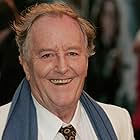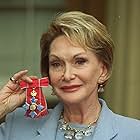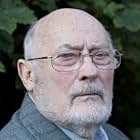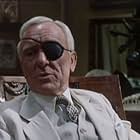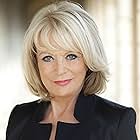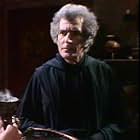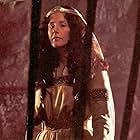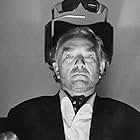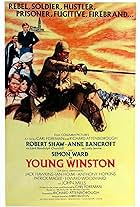The story of Winston Churchill's life between 1929, when he lost his cabinet position, and 1939, when he joined Great Britain's War Cabinet - a period he described as the most difficult in h... Read allThe story of Winston Churchill's life between 1929, when he lost his cabinet position, and 1939, when he joined Great Britain's War Cabinet - a period he described as the most difficult in his life.The story of Winston Churchill's life between 1929, when he lost his cabinet position, and 1939, when he joined Great Britain's War Cabinet - a period he described as the most difficult in his life.
- Nominated for 8 BAFTA Awards
- 1 win & 8 nominations total
Browse episodes
Storyline
Did you know
- TriviaFor his performance in this series, Robert Hardy was the only actor to be nominated in the 1982 BAFTA Television Awards "Best Actor" category who was not being nominated for a role in Brideshead Revisited (1981), as the other nominees that year were Anthony Andrews (the winner), John Gielgud and Jeremy Irons.
- GoofsIn the first episode, "Down and Out," Churchill is seen giving a speech in the USA in 1929. A US flag is visible to his right, and the field (with the stars) is visible. The stars are in staggered rows, meaning it is a 50 star US flag. A 48-star flag, as in use in 1929, would have even rows of stars (six rows of eight).
- ConnectionsReferenced in 28 Up (1984)
Featured review
Great performance from Robert Hardy, also Sian Phillips as stoical Clementine, Nigel Havers as impecunious son Randolph, Tim Piggot-Smith as Churchill cheerleader Brendan Bracken, Peter Barkworth as wily Stanley Baldwin, Eric Porter a trusting Neville Chamberlain, Edward Woodward a devious Samuel Hoare, Tony Mathews an intense Anthony Eden. Only Richard Murdoch's hawkish, almost Churchillian Lord Halifax is completely off beam, presumably to make it easier to cast Chamberlain as villain of the piece.
There are no bad episodes, it dipped slightly in the third and fourth which mostly concerned India and cotton, rather a distraction from the main theme. My favourite, very amusing, scene is in the first episode. Chamberlain, supported by Hoare, tries to persuade Baldwin to remove Churchill from the Treasury. Baldwin slyly asks Chamberlain "who would you most like to see as Chancellor", to which he could only reply that he hasn't given the matter a great deal of thought. An honest answer could only have been himself.
My only criticism is about some of the later dialogue, which displays the oft used device of portraying people in black and white for dramatic effect. I must declare a family connection with Chamberlain, my grandfather knew him well and was his chief canvasser in the 1920s. Did he really say (episode 5) "Churchill is the warmonger, not Hitler"? His statement (episode 7) that "I'm instructing the defence services to continue to reduce their estimates" is tendentious fiction. Military spending rose every year from 110.9 million Pounds in 1933 to 266 million in 1939.
However harshly films and television treat Baldwin and Chamberlain, one can bet all Lombard Street to a China orange (excuse my 1930s lingo) that Labour's record is shown in a good light or glossed over. In March 1936 Labour opposed increases in armaments, their amendment to the budget decried "security in national armaments alone and intensifies the ruinous arms race between the nations" Well known Labour figures voting for this amendment included Attlee, Bevan, Dalton, Greenwood, Morrison, Shinwell. I just thought I'd mention it in the interests of balance.
There are no bad episodes, it dipped slightly in the third and fourth which mostly concerned India and cotton, rather a distraction from the main theme. My favourite, very amusing, scene is in the first episode. Chamberlain, supported by Hoare, tries to persuade Baldwin to remove Churchill from the Treasury. Baldwin slyly asks Chamberlain "who would you most like to see as Chancellor", to which he could only reply that he hasn't given the matter a great deal of thought. An honest answer could only have been himself.
My only criticism is about some of the later dialogue, which displays the oft used device of portraying people in black and white for dramatic effect. I must declare a family connection with Chamberlain, my grandfather knew him well and was his chief canvasser in the 1920s. Did he really say (episode 5) "Churchill is the warmonger, not Hitler"? His statement (episode 7) that "I'm instructing the defence services to continue to reduce their estimates" is tendentious fiction. Military spending rose every year from 110.9 million Pounds in 1933 to 266 million in 1939.
However harshly films and television treat Baldwin and Chamberlain, one can bet all Lombard Street to a China orange (excuse my 1930s lingo) that Labour's record is shown in a good light or glossed over. In March 1936 Labour opposed increases in armaments, their amendment to the budget decried "security in national armaments alone and intensifies the ruinous arms race between the nations" Well known Labour figures voting for this amendment included Attlee, Bevan, Dalton, Greenwood, Morrison, Shinwell. I just thought I'd mention it in the interests of balance.
- midbrowcontrarian
- Jan 12, 2023
- Permalink
Details
Contribute to this page
Suggest an edit or add missing content

Top Gap
By what name was Winston Churchill: The Wilderness Years (1981) officially released in India in English?
Answer









